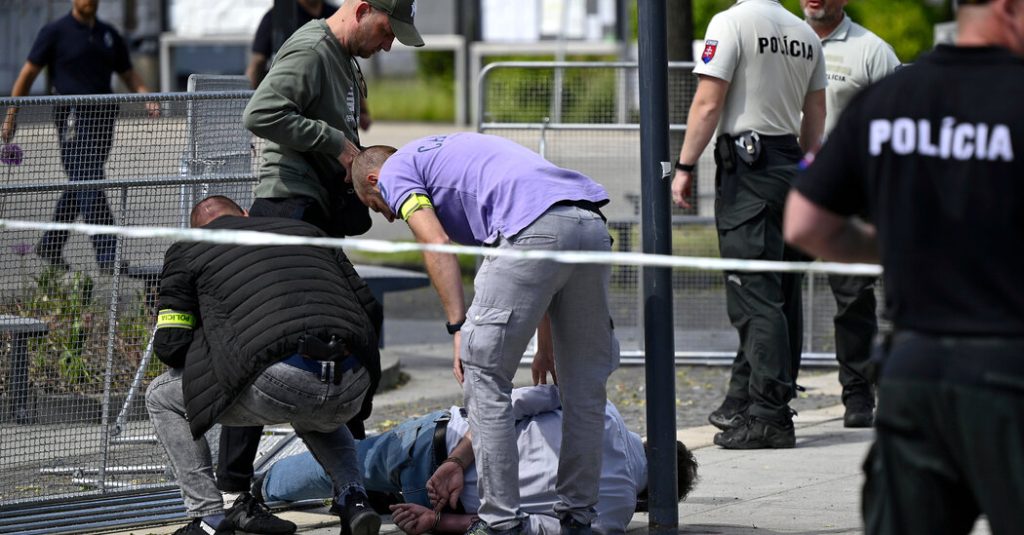Former Russian President Dmitri A. Medvedev compared the recent assassination attempt on Slovakian Prime Minister Robert Fico to Gavrilo Princip, the man who ignited World War I. This comparison reflects the rising tensions in Europe, with violence erupting in Slovakia and an ongoing war in Ukraine, just outside the European Union’s borders. The political divide in Europe, between nationalists and liberals, mirrors the fractures in other European countries, fueled by issues such as immigration and differing views on democracy and human rights.
The shooting of Prime Minister Fico has highlighted the dangerous polarization in European societies, where political opponents are now viewed as enemies, leading to violence and threats. The rise of xenophobic far-right parties across Europe has further fueled this division, with nationalism clashing with globalism, and traditional values being challenged by liberal ideologies. The atmosphere is ripe for conflict and extremism, with even political leaders like Donald Tusk facing threats of violence and accusations of being foreign agents.
The rapid influx of immigrants into Europe has contributed to the rise of far-right parties and the erosion of trust in the European Union’s ability to protect its borders. This has led to a more nationalistic approach in countries like Germany, France, Italy, Sweden, the Netherlands, and Slovakia, where far-right parties have gained popularity. The upcoming European Parliament election is expected to reflect this trend, with these parties poised to perform strongly, potentially further polarizing the continent.
The assassination attempt on Prime Minister Fico has shaken the peace culture of postwar Europe, reminding the continent of its dark history and the potential for violent conflict. The situation is further complicated by the war in Ukraine, which has drawn in European nations and highlighted the fragility of peace in the region. With leaders being targeted and political violence on the rise, the once stable and peaceful Europe faces a precarious future, where free speech and political discourse are under threat.
The current climate in Europe is one of uncertainty and fear, with political violence becoming more common and civility giving way to brutality. The proliferation of social media and the erosion of truth have added to the tension, making it difficult to find common ground among differing ideologies. The situation is much more dangerous than it used to be, with the peaceful postwar era seemingly coming to a bitter end as Europe grapples with division, extremism, and the specter of conflict.


